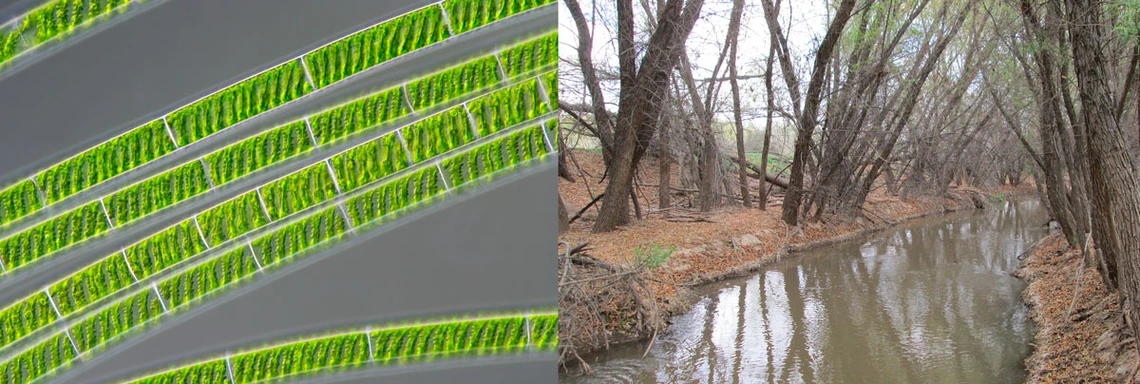Image

When
to
Where
WRRC, Sol Resnick Conference Room, 350 N. Campbell Ave., Tucson, AZ
Speaker(s)
Amanda Minke
Student, Dept. of Hydrology and Atmospheric Science
Drew Eppehimer
Ph.D. student, Arid Land Resource Sciences Program
This Brown Bag will feature presentations by UA students who received research grants in 2018 through the WRRC from the Water Resources Research Act, Section 104(b) grant program. This program fosters regionally important research on water and related issues and encourages students and young scientists to pursue careers in water resources.
Human exposure to lead is a global-priority environmental health concern and affects many places in Arizona. Amanda Minke's presentation describes a project investigating the removal of lead from drinking water using common freshwater algae. Preliminary results have revealed some of the factors that control the effectiveness of algal lead removal.
Portions of the Santa Cruz River that have not had perennial flow since the mid-1900s have been artificially reborn with treated wastewater. Drew Eppehimer's presentation will explore the health effects of effluent-dominated aquatic habitat on native fish, including fluctuating water levels, emerging contaminants, and (3) altered diets, such as consumption of microplastic.
Amanda Minke is currently a sophomore at the University of Arizona, studying hydrology. Drew Eppehimer is a native of Arizona and currently a Ph.D. student of aquatic ecology at the University of Arizona. He has degrees in Spanish, environmental science, and natural resource management and has worked for the National Oceanic and Atmospheric Administration and the US Geological Survey.
Images Wikimedia Commons

